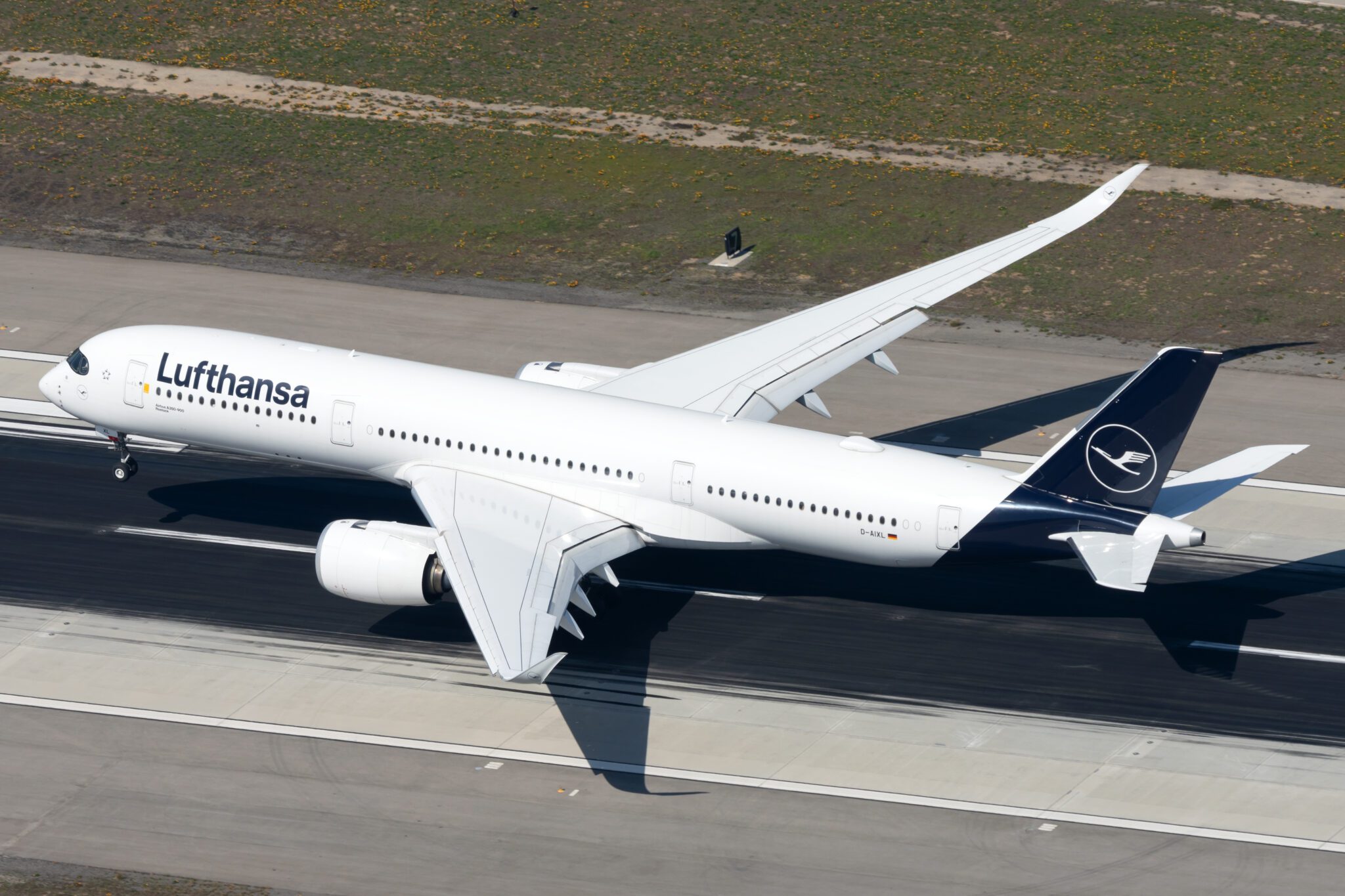Lufthansa Says it Can't Afford New Eco Laws. It's Adding Up to €72 to Airfares

Skift Take
Flying from Europe is about to get more expensive. On June 26, some of the continent’s largest flag carriers will begin charging an additional fee for flights departing next year.
Described as an ‘Environmental Cost Surcharge’, it will affect all airlines within the Lufthansa Group.
The parent company is best known for operating Germany’s national carrier, but it also owns several other major brands including Austrian Airlines, Eurowings, Swiss, and Brussels Airlines.
Why is the Surcharge Being Introduced?
Lufthansa says the surcharge is required to “cover part of the steadily rising additional costs due to regulatory environmental requirements.”
It cites several new laws and changes to existing regulations in its justification for the new fee. Among these are a new EU quota for Sustainable Aviation Fuel (SAF), which comes into force on January 1 next year. Carbon offsetting programs and emissions trading systems are also referenced.
In a statement, the company said it has supported global climate and weather research for many years. However, it added that it “will not be able to bear the successively increasing additional costs resulting from regulatory requirements in the coming years on its own.”
Which Flights Will Cost More?
The surcharge will apply to all flights sold and operated by the Lufthansa Group departing from the EU’s 27 member nations. Services from the United Kingdom, Norway, and Switzerland are also affected. While one-way inbound flights will not be charged, these make up a small proportion of overall journeys.
The Lufthansa Group said starting June 26, all tickets for departures from January 1, 2025 will have the fee applied.
How Much Will the Surcharge Actually Cost?
Short-haul flights
Economy: Up to €5
Business: Up to €7
Long-haul flights
Economy: Up to €12
Premium Economy: Up to €18
Business: Up to €36
First class: Up to €72
The Lufthansa Group says the exact amount will be shown on the airlines’ booking page as part of the pricing details.
Will Other Airlines Follow Lufthansa’s Lead?
The Lufthansa Group is among the first to announce a formal environmental levy, but it is unlikely to be the last.
While the Air France-KLM Group introduced a SAF-specific surcharge in 2022, this remains relatively modest by comparison at €1 ($1.07) to €12 ($13) per ticket.
By pinning the root cause of the surcharge on industry-wide legal changes, the airline has a degree of separation from any direct consumer backlash. However, a price hike of up to €72 per ticket could put Lufthansa at a commercial disadvantage should competitors choose not to follow suit.
Skift has contacted other major European airlines to find out if they are planning similar changes to their fare structure in light of upcoming legal changes.
Watch our Sustainability Discussion at the Skift Aviation Forum 2023 Here:
Airlines Sector Stock Index Performance Year-to-Date
What am I looking at? The performance of airline sector stocks within the ST200. The index includes companies publicly traded across global markets including network carriers, low-cost carriers, and other related companies.
The Skift Travel 200 (ST200) combines the financial performance of nearly 200 travel companies worth more than a trillion dollars into a single number. See more airlines sector financial performance.
Skift’s in-depth reporting on climate issues is made possible through the financial support of Intrepid Travel. This backing allows Skift to bring you high-quality journalism on one of the most important topics facing our planet today. Intrepid is not involved in any decisions made by Skift’s editorial team.





